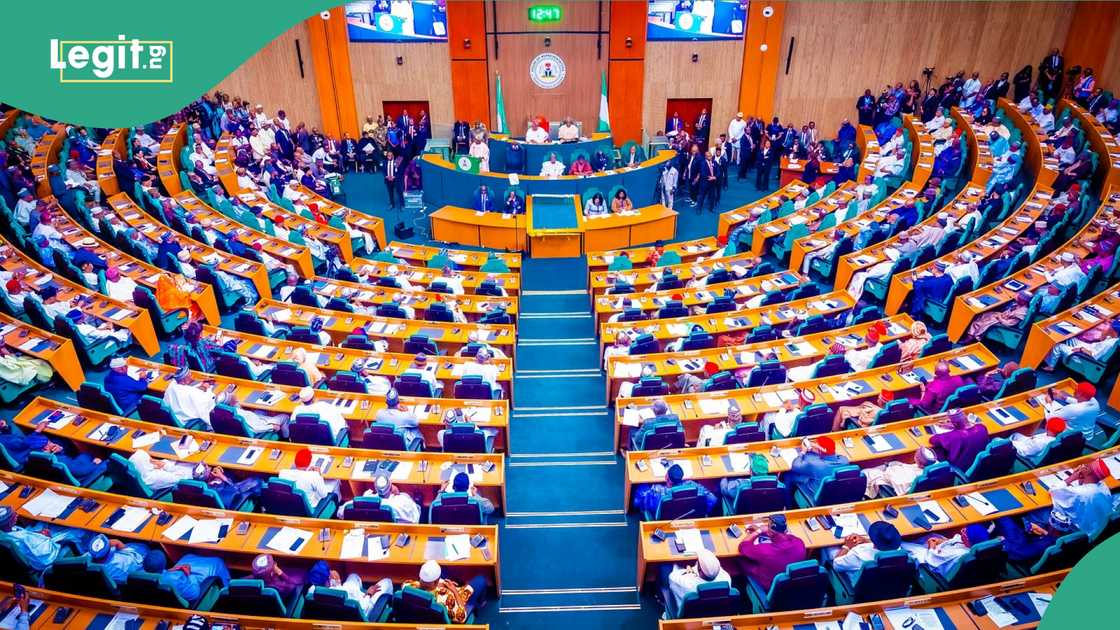Bill to Jail Nigerians Who Refused to Vote During Elections Proposed at National House of Assembly
- A proposed bill in Nigeria’s National Assembly aims to jail or fine eligible voters who fail to vote during elections, sparking widespread criticism
- Declining voter turnout reflects growing disillusionment with Nigeria’s electoral process, with the 2023 presidential election recording the lowest participation in history at 27%
- Critics stress the need for genuine electoral reforms to address logistical challenges and rebuild public trust in democracy
A proposed bill in Nigeria’s National Assembly seeks to impose a six-month jail term or a fine of ₦100,000 on eligible voters who fail to participate in elections.
Titled ‘Bill for an Act to Amend the Electoral Act 2022,’ the legislation has been criticised as provocative and repressive.

Source: Facebook
While some countries practise compulsory voting, they typically impose minor fines rather than imprisonment, as seen in Australia and Belgium.
Declining voter turnout in Nigeria
Nigeria has witnessed a consistent decline in voter turnout since 2007, with the 2023 presidential election recording the lowest participation rate in history—27% of eligible voters.
Disillusionment with the electoral process, logistical challenges, and perceived manipulation of results have contributed to voter apathy. Many Nigerians feel their votes do not count, further eroding trust in democracy.
Calls for electoral reform
Critics argue that the bill fails to address the root causes of voter apathy, such as poor logistics, harassment, and lack of voter education.
Civil society organisations, including the Socio-Economic Rights and Accountability Project, have called for the bill’s withdrawal, describing it as oppressive and unconstitutional.
Advocates stress the need for genuine electoral reforms to restore faith in Nigeria’s democratic processes.
Economic hardship and disconnection from democracy
The declining quality of life in Nigeria has exacerbated citizens’ disconnection from democracy. Rising costs of living, including the price of staple goods like rice, have left many disillusioned with governance.
Experts suggest that delivering tangible dividends of democracy could reignite public interest in elections and governance.
Nigerian national assembly
The Nigerian National Assembly is the country’s bicameral legislature, consisting of the Senate and the House of Representatives.
Established under the 1999 Constitution, it is responsible for making laws, approving budgets, and overseeing the executive branch.
The Senate has 109 members, with three senators from each of the 36 states and one from the Federal Capital Territory, while the House of Representatives comprises 360 members elected based on population.
The Assembly plays a critical role in shaping Nigeria’s governance and democracy, though it has faced criticism for inefficiency and high operational costs. It convenes in Abuja, the nation’s capital.
Bills to create 4 new states pass second reading
Legit.ng earlier reported that the House of Representatives has passed four bills that are seeking to create four new states across the country through second reading.
From the report that emerged, the Green Chamber also passed 38 other bills in the move to alter the 1999 Constitution of the Federal Republic of Nigeria (as amended) and provide several amendments in the ongoing constitutional review by the 10th Assembly.
Daily Trust reported that the 42 bills were categorised under different headings that represented their focus.
PAY ATTENTION: Сheck out news that is picked exactly for YOU ➡️ find the “Recommended for you” block on the home page and enjoy!
Source: Legit.ng





